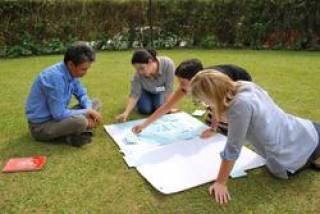Development of Sustainable Models for Post-Graduate and Professional Training in Nutrition in Emergencies

Project Summary
Emergency response to nutritional crises has improved over the last two decades but significant challenges remain. One of these is the lack of adequately trained human resources, both nationally and internationally. There is a pressing need for professional nutritionists, trained to a level that will equip them with a broad understanding of the full range of emergency nutrition issues, strong analytical skills, flexibility and knowledge of how to access the resources required for effective programming in emergencies. Such staff are required both at national level and for deployment internationally by humanitarian agencies.
There is general agreement within the nutrition sector that current training opportunities are too few, are often inaccessible to potential students in regions of the world where disasters and emergencies are prevalent, and may not always be of an adequate standard to meet the identified needs.
This initiative is being undertaken jointly by a number of universities and training institutions from Africa, Asia, and Europe, which are members of the Nutrition in Emergencies Regional Training Initiative (NIERTI). The project aimed to establish regional NIE training courses at graduate and professional level in three phases:
Phase 1: Course development and design. A professional short course (1-2 weeks) and a MSc graduate level module (3-4 weeks) were developed and designed based on the technical content of the Harmonised Training Package.
Phase 2: Introduction of a professional short course in NIE. The 1-2 weeks courses were adopted and run by the Asian Disaster and Preparedness Centre, Bangkok; the American University of Beirut; and Makerere University, Kampala.
Phase 3: Introduction of a NIE module within pre-established nutrition MSc courses. This activity involved the development of a module on nutrition in emergencies which is run as part of a nutrition or public health course module by Makerere University, Kampala.
 Close
Close

